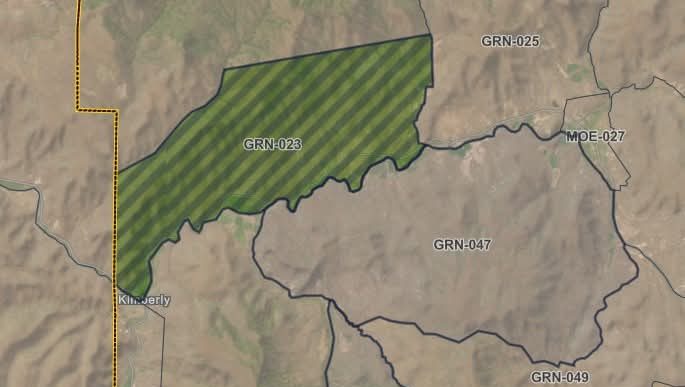Gov. Brown unveils two-tiered minimum wage plan
Published 4:53 am Thursday, January 14, 2016

- Gov. Kate Brown
SALEM — Gov. Kate Brown unveiled a plan Thursday for a two-tiered minimum wage in the state.
Trending
The proposal would gradually boost the minimum from $9.25 to $15.52 in 2022 only in the Greater Portland area.
Housing prices and cost of living have prompted researchers from one Portland-area think tank to describe the need for a higher minimum as “urgent.”
“The costs of essentials such as food, child care, and rent are rising so fast that wages can’t keep up,” Brown said in a statement. “Many Oregonians working full-time can’t make ends meet, and that’s not right.”
Trending
In the rest of the state, the plan would hike the minimum to $10.25 in 2017 and $13.50 by 2022.
After 2022, the minimum would return to increasing in conjunction with Consumer Price Index, the Governor’s Office said.
The proposal will be presented to the Legislature during its 35-day session in February and March.
House Speaker Tina Kotek, D-Portland, and Senate President Peter Courtney, D-Salem, said Thursday they will push to pass the governor’s proposal.
Kotek said she would prefer to raise wages in Portland faster than what’s outlined in the governor’s proposal. Still, she said, the plan gives businesses certainty and time to plan.
The plan still might not succeed in averting a battle over minimum wage at the ballot box in November.
Petitioners for a ballot initiative to hike the minimum to $15 statewide by 2019 say Brown’s proposal falls short of Oregonians’ needs, especially those living in the Portland metro area.
“Six years is too long,” said chief petitioner Jamie Partridge. “People need $15 now. The governor’s plan is not enough to bring workers out of poverty. We can’t expect prices to stay the same over six years.”
Partridge said people throughout the state need $15 per an hour.
The $15 initiative group also wants cities and counties to receive authority to increase minimum wage higher than the state limit.
They said they plan to continue gathering signatures to place their initiative on the ballot. Justin Norton-Kertson, campaign manager for Oregonians for $15, said the group has already collected nearly 40,000 signatures and anticipates gleaning a total of 50,000 to 60,000 by the end of the legislative session in early March.
“We are well on track to have enough signatures collected by July to put this on the ballot,” Norton-Kertson said Wednesday.
Business groups opposed to a minimum wage hike also are gearing up to try to defeat the initiative.
Betsy Earls of Associated Oregon Industries, on Wednesday advised lawmakers to spend their time on issues other than minimum wage.
“It sounds like … there will be at least one ballot measure going forward no matter what,” Earls said. “What I would say to you is we will have to fight that ballot measure probably so we will have to expend resources regardless of what you guys do. I would advise you to sit tight, do nothing.”
Courtney said he thinks legislative action on the issue will drain momentum for the initiative campaign.
“I think if we do take this action and make it happen, as hard as it’s going to be, that I think it really puts us in a situation that when the public goes to the polls, they have the ability to say, I think they took care of the minimum wage in a way we can live with and in a way we think is helpful to the wages of our working people,” he said.
The governor’s proposal was shaped through conversations with stakeholders in the public and private sectors, according to the Governor’s Office.
The higher minimum wage rate would apply to Portland’s urban growth boundary. That area includes Hillsboro, Gresham, Beaverton, Tigard, Lake Oswego, Tualatin, Troutdale, West Linn, Forest Grove, Cornelius, Wood Village, Wilsonville, Sherwood, Fairview, Happy Valley, Damascus, Milwaukie, Oregon City and Gladstone.
Brown’s plan is separate from a proposal by
Sen. Michael Dembrow, D-Portland, had proposed a separate plan that also would set different regional minimums around the state. But, in light of Brown’s announcement Dembrow said Thursday he’s withdrawing his proposal.
“This proposal and the one that I’ve been working on are very close, so I don’t see a need to go forward with mine,” Dembrow said. He said he will support the governor’s version..
Another proposal out of the House Committee on Business and Labor would mimic a union-backed ballot initiative that would raise the minimum to $13.50 around the state and give cities and counties authority to set a higher minimum. That bill is a placeholder for the legislative session and could be changed.
The Capital Bureau is a collaboration between EO Media Group and Pamplin Media Group.









